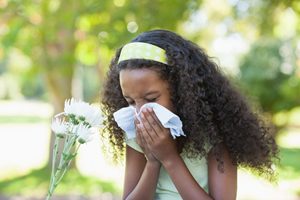
In early spring, experts predicted this year's allergy season to be one of the worst in recent memory. While many allergy sufferers had hoped they'd be wrong, recent reports indicate the predictions were accurate.
A number of different factors have contributed to the high pollen count as well as allergic reactions. For many around the U.S., particularly in New England, the harsh, long winter meant a delay in spring blooming. As a result, trees that normally released pollen early in the season began their cycles later. Their compressed season meant that plant species began to release pollen at the same time as other plants and grasses. The end result has been a nightmare for people who suffer from more than one allergy because they're now getting hit at the same time.
Things also don't look good in the near future for allergy suffers. Dr. Mohan Dhillon of Allergy & Asthma Consultants noted that, "if we continue to have a wet July, we will see the grasses continue to bloom through July and into August." This may sound surprising for those who believe rain is an allergy sufferer's best friend. While rain may suppress pollen initially, it also helps grasses grow. When this happens, the grass season — and thus pollen season — extends later into the year.
While this story certainly won't make an allergy sufferer's day better, certain products that manage allergies will. Think about purchasing a dehumidifier, humidifier or allergy bedding. A dehumidifier can reduce moisture, which reduces mold. A humidifier does just the opposite. Allergy bedding includes dust-mite free pillows and mattress covers.
For more allergy solutions, visit Allergy Be Gone's store for a wide range of allergy control products.









